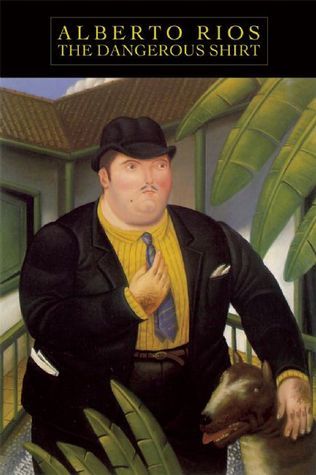
"Discursive yet aglitter with images, often abstract and yet insistently regional, the ninth collection from the Arizona-based Rios includes something for almost everyone."—Publishers Weekly "Wonderfully odd, sometimes sad, never predictable... Rios continually surprises us in the way he stretches the meaning of words, turning them this way and that." — San Francisco Chronicle “Ríos’s verse inhabits a country of his own making, sometimes political, often personal, with the familiarity and pungency of an Arizona chili.”—The Christian Science Monitor “Alberto Ríos is... arguably the best Latino poet writing in English today.”—Prairie Schooner Alberto Ríos’s new poems—magical wormholes through mundane reality—create an improbably true space where human bodies fall through floorboards, prickly feelings of limbs “fallen asleep” are stars buzzing under the skin, and ironed shirts hanging in a closet take on a foreboding sense of danger. Together they are a book of magical realism and cultural physics seeking the “also-moment”—the probable and imaginative directions a single moment might become. “Science may be our best way of understanding the world,” Ríos writes in one poem, “but it may not be our best way of living in it.” The shirt in my closet is dangerous. I shouldn’t have ironed it. Because I have, I will put it on. If I put it on, I will be dressed. If I am dressed, I will be drawn toward the door, The door and not the couch—the door . . . Alberto Ríos is the author of nine books of poetry, three collections of short stories, and a memoir. He has taught at Arizona State University for over twenty-five years. His book of poems The Smallest Muscle in the Human Body was nominated for the National Book Award.
Author

In 1952, Alberto Alvaro Ríos was born on the American side of the city of Nogales, Arizona, on the Mexican border. He received a Bachelor of Arts from the University of Arizona in 1974 and a MFA in Creative Writing from the same institution in 1979. He is the author of several collections of poetry, including Dangerous Shirt (Copper Canyon Press, 2009); The Theater of Night (2007); The Smallest Muscle in the Human Body (2002), which was nominated for the National Book Award; Teodora Luna's Two Kisses(1990); The Lime Orchard Woman (1988); Five Indiscretions (1985); and Whispering to Fool the Wind (1982), which won the 1981 Walt Whitman Award, selected by Donald Justice. Other books by Ríos include Capirotada: A Nogales Memoir (University of New Mexico Press, 1999), The Curtain of Trees: Stories (1999), Pig Cookies and Other Stories (1995), and The Iguana Killer: Twelve Stories of the Heart (1984), which won the Western States Book Award. Ríos' poetry has been set to music in a cantata by James DeMars called "Toto's Say," and on an EMI release, "Away from Home." He was also featured in the documentary Birthwrite: Growing Up Hispanic. His work has been included in more than ninety major national and international literary anthologies, including the Norton Anthology of Modern Poetry. "Alberto Ríos is a poet of reverie and magical perception," wrote the judges of the 2002 National Book Awards, "and of the threshold between this world and the world just beyond." He holds numerous awards, including six Pushcart Prizes in both poetry and fiction, the Arizona Governor's Arts Award and fellowships from the Guggenheim Foundation and the National Endowment for the Arts. Since 1994 he has been Regents Professor of English at Arizona State University, where he has taught since 1982. He lives in Chandler, Arizona.